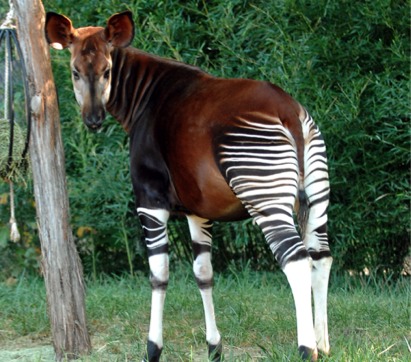East Africa Individual Project

Sign up for FlowVella
Sign up with FacebookAlready have an account? Sign in now
By registering you are agreeing to our
Terms of Service
Loading Flow


Okapi
Only 25,000 left
Endangered

HABITAT
Limited to closed, high canopy forests, occurring in a wide range of primary and older secondary forest types.Okapi don't range into gallery forests or into forest islands on the savanna and they don't stay in the disturbed habitats surrounding human settlements.Will occupy seasonally flooded areas when the ground is still wet, but they do not occur in truly wet sites or extensive swamp forest.
CHARACTERISTICS
Reddish-brown to black, velvety pelage on body and face.
Black muzzle and nostrils.
Long, thick eyelashes; calf has long hairs around eyes or "false eyelashes" that disappear in time.
Tapered white or creamy white horizontal stripes on rear and upper front legs
Anklets and stockings of white on lower legs (perhaps enabling other okapi to easily follow through dark forests as they have poor eyesight).
Cheeks, throat and rear-most belly are whitish to gray or tan.
Newborns have similar color and pelage; mane is conspicuous and is largely lost by adulthood
East Africa Individual Project
